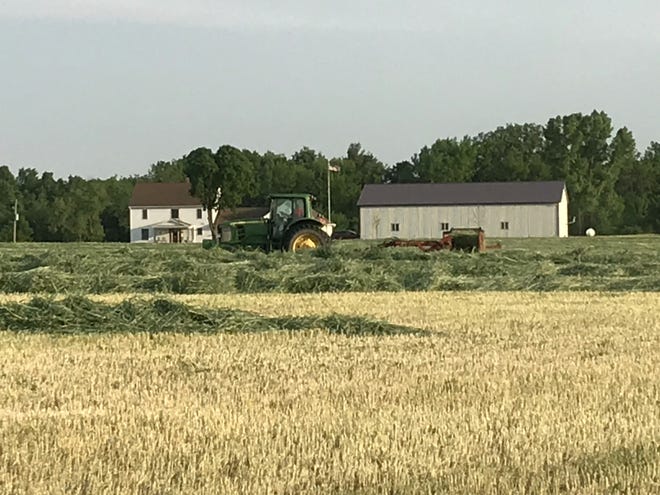"Cover Crop Coach" says management is key to success

Author and entrepreneur Steve Groff, known by his nickname "Cover Crop Coach," says using modern management methods in the fields is the key to success for farmers dedicated to conservation.
Groff, who works with agronomists and seed specialists, says it's important to plan ahead for your conservation strategy through planting cover crops and covering the soil the right way. He also said farmers should treat their cover crops like cash crops. The Cover Crop Coach visited a Lafayette Ag Stewardship Alliance meeting in February.
"It's your management that is going to make the difference of whether or not you'll achieve soil health," Groff said at the meeting. "You can’t buy soil health; it has to be made."
Groff began planting cereal rye cover crops beginning in 1982. He said his goals include lowering pesticide use, avoiding commodity crops, increasing nutrient density and maintaining plant diversity, all while keeping the farm profitable.
"We must mimic nature. Diversity is found in nature, and we as farmers need to start challenging ourselves to be more diverse in our operations," Groff said. "That’s what will make biological things happen. ... My soil is changing and it's great to see that."

Farmers fear yield loss and don't explore soil health alternatives to commercial agriculture products, Groff said. He believes ag product retailers sell products to farmers that control nature and boost their own profits, while there are better alternatives available to improve soil health and plant diversity while maintaining or increasing yield.
When thinking about improving your soil's health, Groff said you should consider the goals you want to achieve first, whether it's reducing erosion, being more resilient during bad weather or producing more organic matter. He recommends creating a 10-year plan based on those goals that will help guide farmers.
"You will not get instant results from the things I’m talking about today," Groff said. "There are no shortcuts, so take time to understand the system."
Groff also emphasized that farmers should be talking about the challenges of growing cover crops as a means of becoming more successful. Recognizing those challenges, like the costs and specialized equipment, help farmers learn how to improve their conservation strategies and figure out where research is headed in the future.
"To be successful, learn all you can and understand where the future may be going," he said. "Technology and biology are the foundation of agriculture progress for the 21st century."